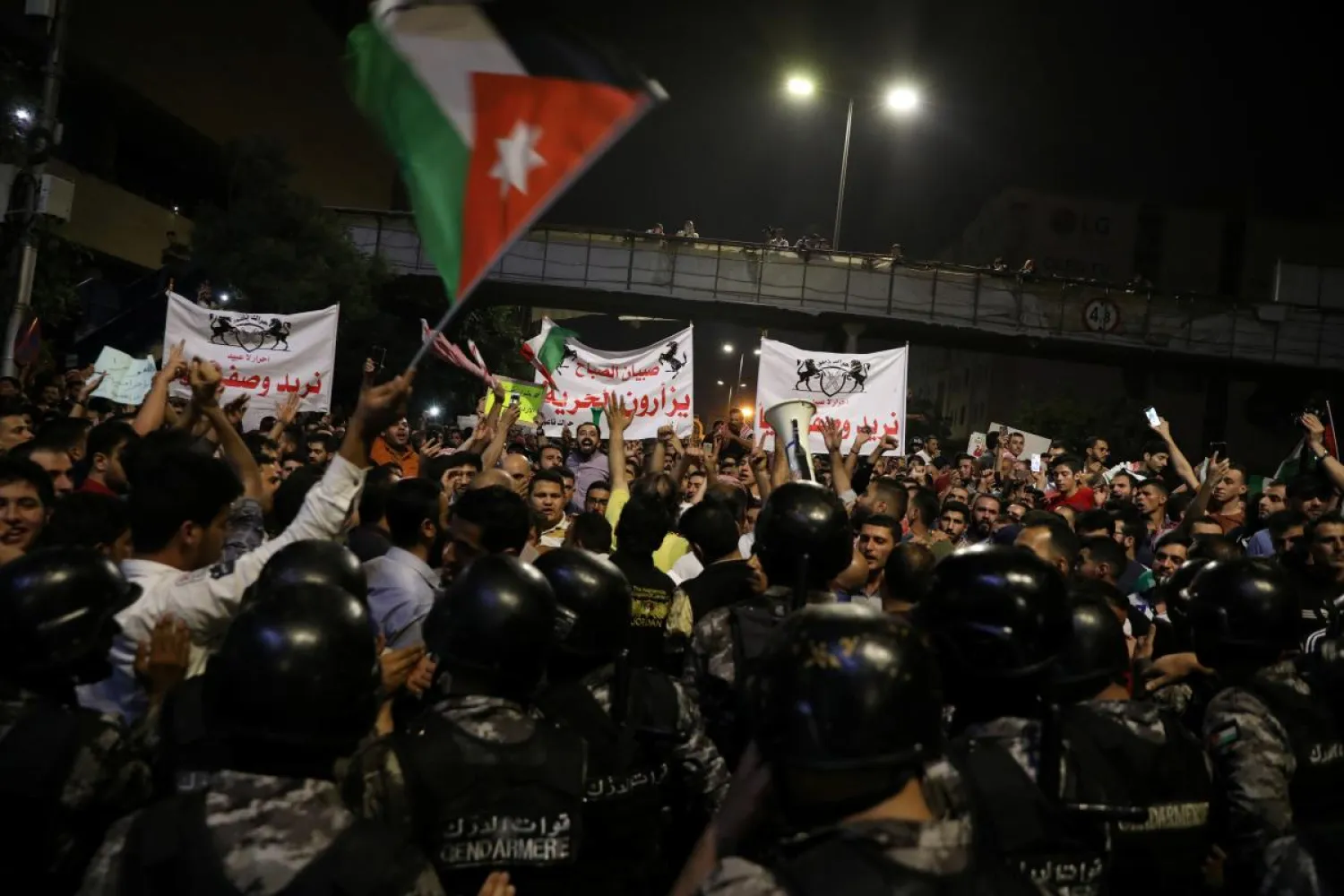Professional unions in Jordan chose on Wednesday to escalate, in response to street pressure, a few hours after they announced the cessation of protests.
Addressing the crowds, who responded to calls for a sit-in on Wednesday, the head of the Professional Unions Association, Ali Al-Abous said that the association decided to suspend sit-ins and strikes in order to give the new government the opportunity to announce its plan. But the protesters rejected his decision, shouting slogans against him, accusing him of “selling their case” and threatening to break into the headquarters of the association.
In light of mounting pressure by around 3,000 protesters, Abous held a second emergency meeting with union representatives and decided afterward to respond to popular demands.
Amid different opinions by the unions, Abous reiterated his call to withdraw the draft income tax law, which is supported by the International Monetary Fund (IMF), and to amend the civil service system.
He also stressed that escalating measures would be announced during the coming hours and days.
Around 33 business, economic and banking unions announced two days ago their withdrawal from the sit-ins, after King Abdullah II designated Omar al-Razzaz, a former economist at the World Bank, to form a new cabinet and launch dialogue on the controversial income tax law.
The various Jordanian cities witnessed a general strike in government hospitals and health centers, which resulted in total paralysis and as the staff refused to handle any medical condition other than emergencies.
Some shops were closed in rejection of the income tax bill, while some directorates and ministries saw a partial suspension of work as some employees.
The bill to increase the income tax, which came under IMF guidance, increased consumer goods prices and sparked the country’s biggest protests in years.
On Tuesday, King Abdullah II called for a review of the draft law and charged Razzaz – a Harvard graduate - with forming a government.









